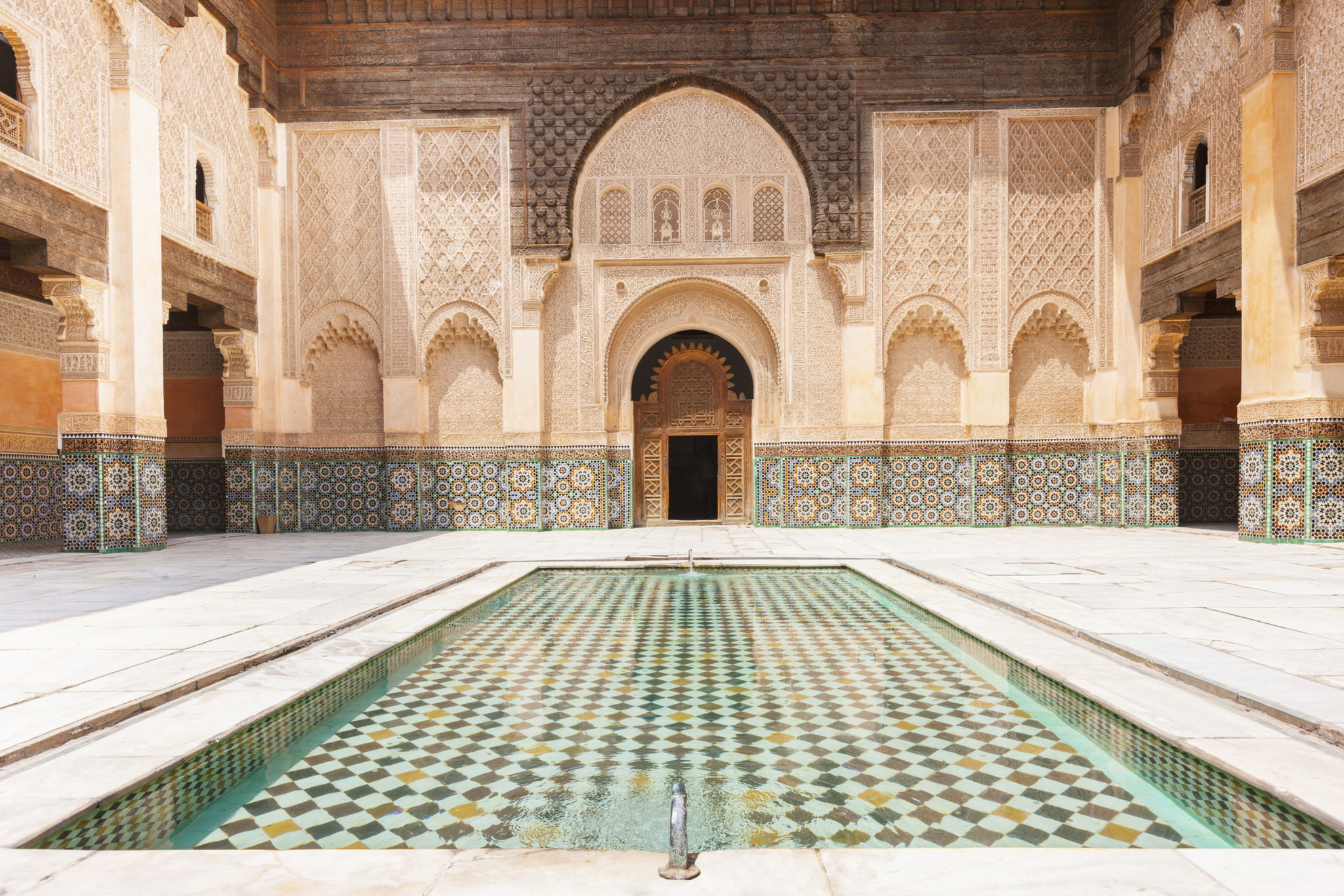Cultural Highlights of Morocco: What to Expect on Your Tour
Introduction to Morocco's Cultural Tapestry
Morocco, a land where the sun sets over vast deserts and rises over bustling cities, offers a kaleidoscope of cultural experiences. Whether you're wandering through its ancient medinas or savoring its aromatic cuisines, Morocco promises an unforgettable journey through time and tradition.
As you plan your tour, prepare to be immersed in a vibrant culture that is as diverse as it is rich. From Berber traditions to Andalusian influences, here's what you can expect as you traverse this North African gem.

The Allure of Moroccan Architecture
Moroccan architecture is a feast for the eyes, characterized by intricate tilework, grand arches, and stunning courtyards. The blend of Islamic, Moorish, and French colonial influences creates a unique architectural style that is both historic and breathtaking.
Some must-visit sites include:
- The Hassan II Mosque in Casablanca, one of the largest mosques in the world.
- The medieval city of Fes, home to the world's oldest university.
- The Kasbah of the Udayas in Rabat, with its stunning views and historical significance.

Delve into Moroccan Cuisine
Moroccan cuisine is a delightful fusion of flavors and spices. A tour of Morocco is incomplete without indulging in its culinary delights. The use of spices such as saffron, cumin, and coriander adds depth and warmth to every dish.
Be sure to try:
- Tagine: A slow-cooked stew named after the earthenware pot it's cooked in.
- Couscous: A staple dish often served with meat or vegetable stew.
- Pastilla: A savory-sweet pastry filled with spiced meat and almonds.

The Vibrant Markets and Medinas
The bustling markets, or souks, are a quintessential part of Moroccan life. Exploring these vibrant spaces offers an authentic glimpse into local culture. Here, you can find everything from handmade crafts to traditional clothing and aromatic spices.
Notable markets include:
- The Souks of Marrakech: A labyrinth of stalls selling textiles, pottery, and jewelry.
- The Blue City of Chefchaouen: Known for its unique blue-washed buildings and artisanal goods.
The Rich Heritage of Music and Dance
Music and dance are integral to Moroccan culture. Each region boasts its own distinct style, from the hypnotic rhythms of Gnawa music to the traditional Berber dances. These performances often accompany festivals and celebrations, providing a lively soundtrack to your Moroccan adventure.

Experiencing Moroccan Festivals
Morocco's festivals are a vibrant celebration of its cultural diversity. Attending one offers a deep dive into local customs and traditions. The Marrakech Popular Arts Festival, for example, showcases a wide array of performances from acrobatics to storytelling.
During Ramadan, visitors can experience the communal spirit and culinary specialties that define this holy month. The Rose Festival in El Kelaa M’Gouna is another highlight, celebrating the blooming of roses with parades and music.
Understanding Moroccan Traditions
Moroccan traditions are deeply rooted in community and hospitality. Visitors are often welcomed with mint tea, a gesture symbolizing friendship and warmth. Participating in a traditional hammam bath or dining with a local family are ways to truly engage with Moroccan culture.

Conclusion: Embrace the Journey
As you embark on your Moroccan tour, prepare to be enchanted by the country's cultural highlights. Each city, village, and landscape tells its own story, inviting you to explore its history and heritage. With an open mind and heart, you'll discover the essence of Morocco—a land where the past meets the present in a vibrant tapestry of life.
